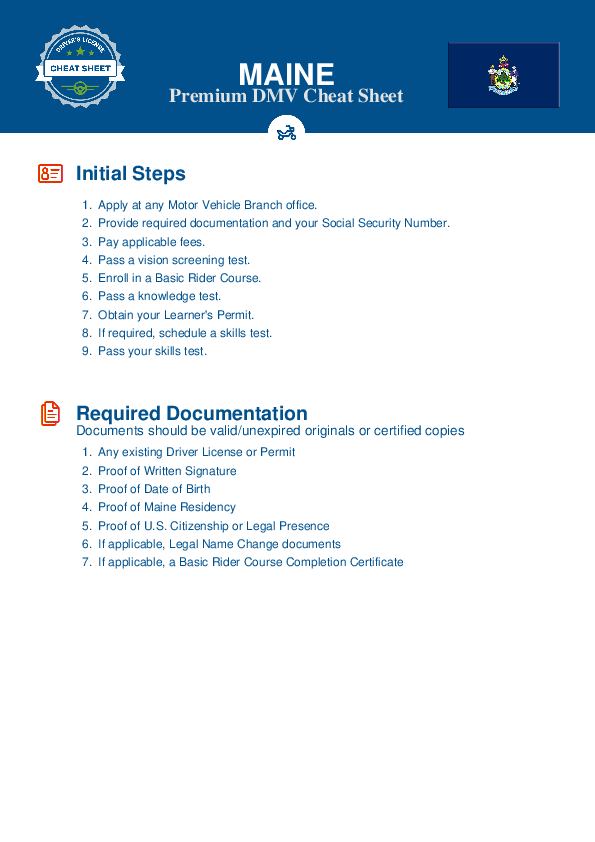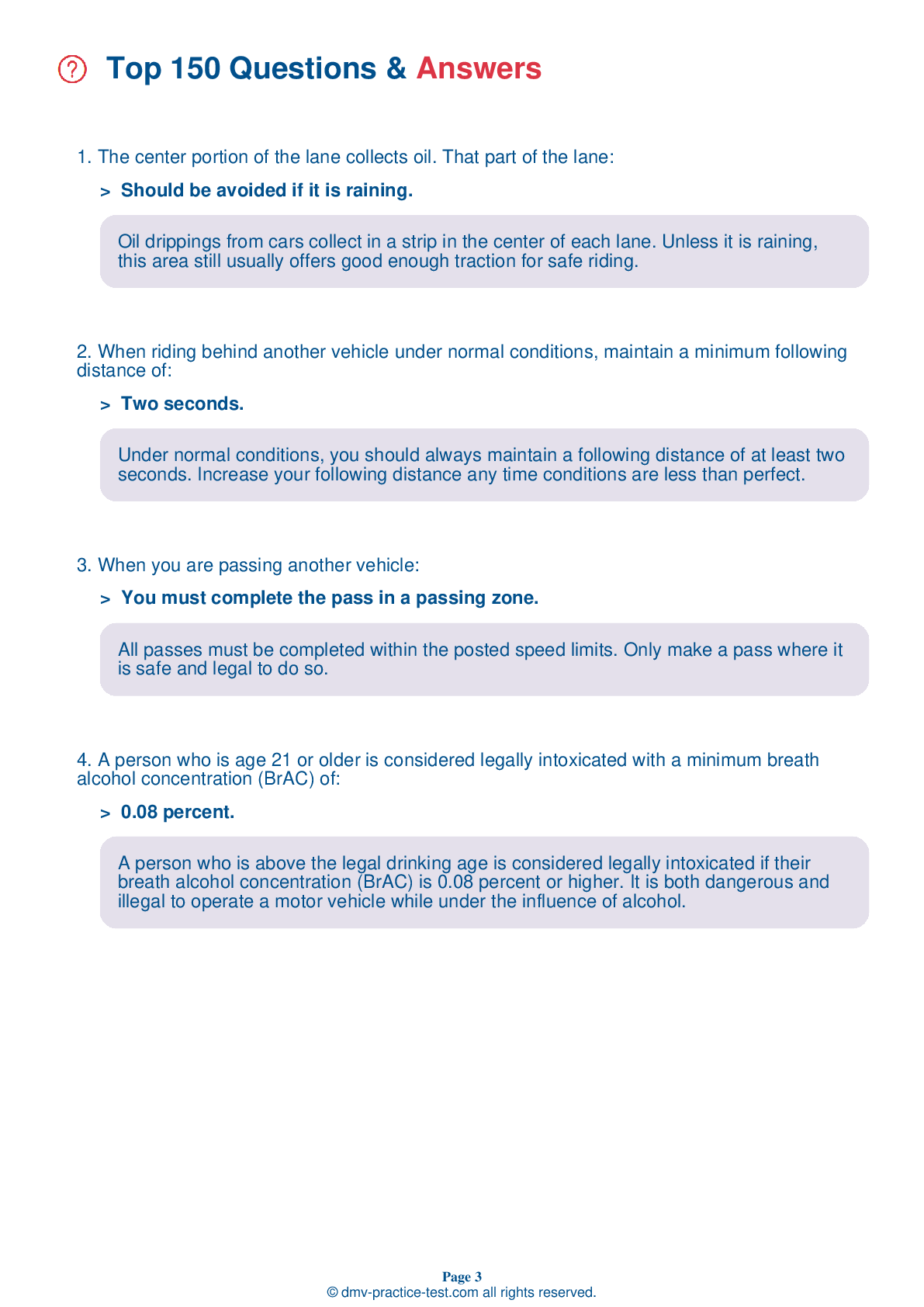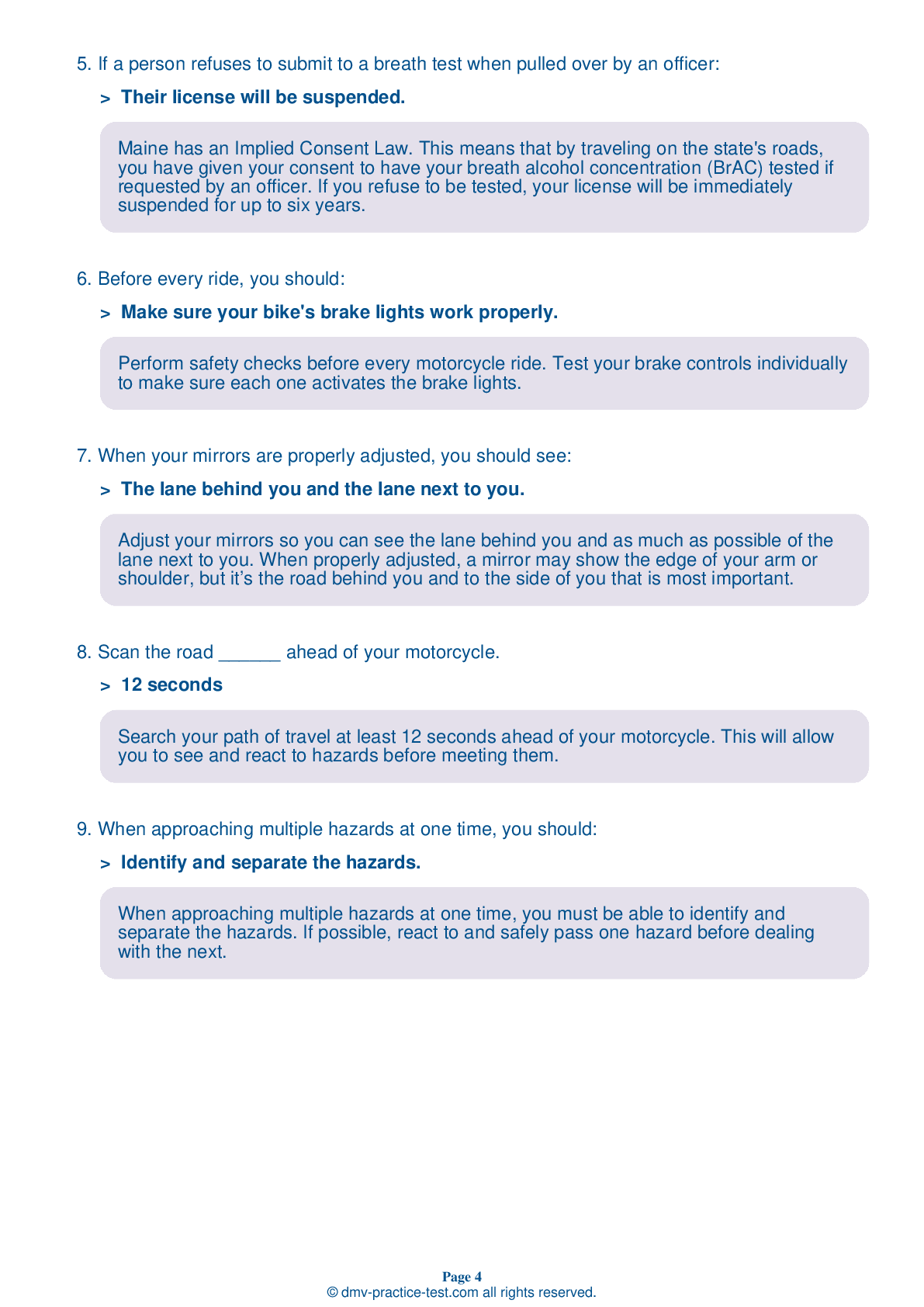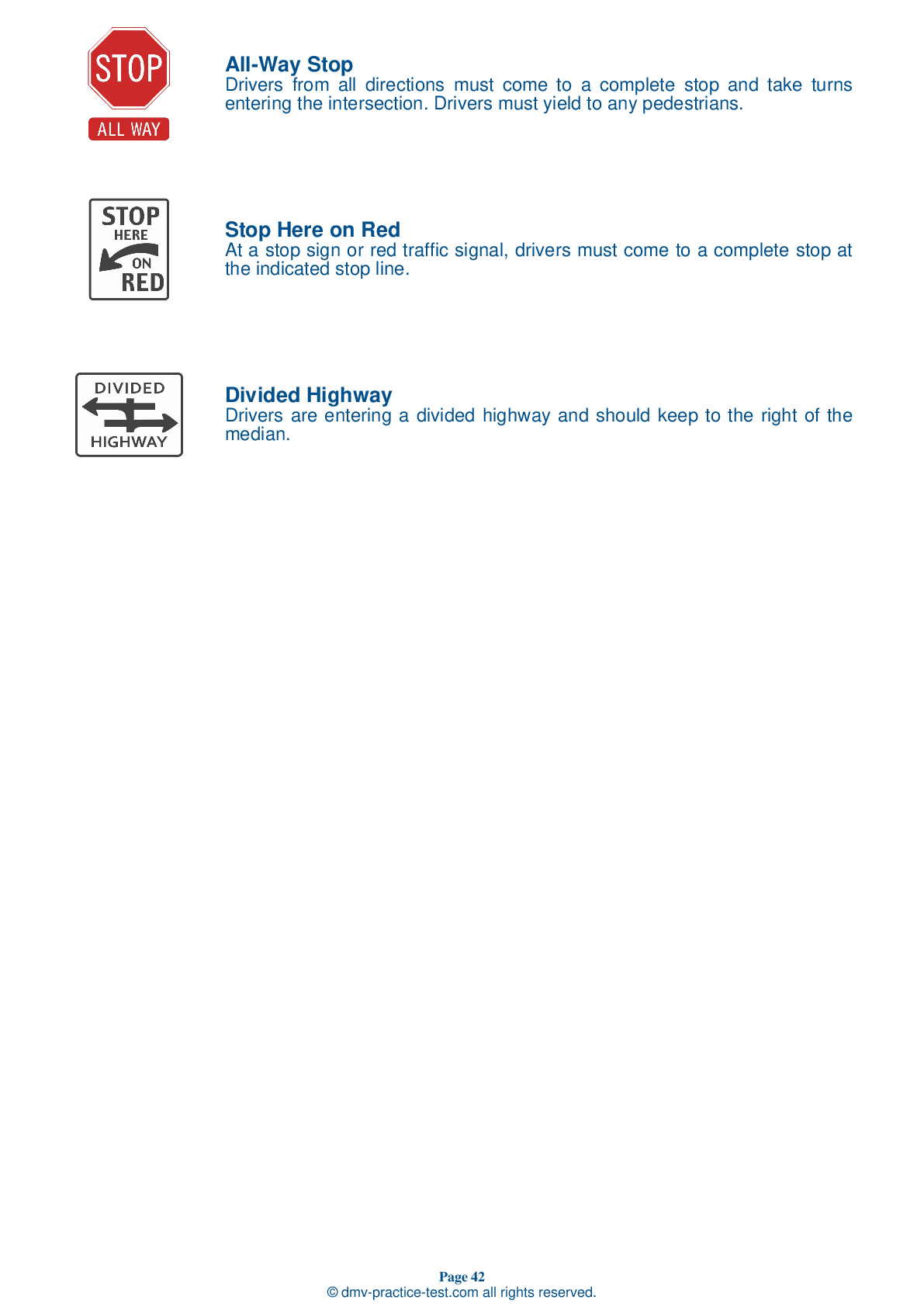Motorcycle Test | License ME 2024 | FREE Online Practice! #11 Page 4 of 7
Take this FREE motorcycle test (license in ME 2024) to check your knowledge of the road rules. To improve your results, download a motorcycle handbook online, study theory, and practice for free on our website. Still worried about how to get a motorcycle license in Maine in 2024? Check our website for more sample tests, train as much as possible, and boost your grades!
22 . What does alcohol do to your riding skills and judgement?
Alcohol negatively affects many skills needed for safe riding, including your reaction time and ability to see clearly. It can also harm your judgment of speed and distance, lower your inhibitions, and make you more prone to taking chances.
23 . When braking, you should:
To brake, squeeze the front brake lever and press down on the rear brake pedal. Always use both brakes when slowing or stopping.
24 . A shatter-resistant face shield:
A plastic, shatter-resistant face shield can provide protection for your entire face in the event of a crash. Goggles can protect your eyes, but not the rest of your face. A face shield also provides routine protection from dirt, dust, insects, rain, and pebbles.
25 . A helmet should not:
You will get the greatest amount of protection from a helmet if it meets U.S. Department of Transportation (DOT) and state standards, fits snugly all the way around, and has no obvious defects. A helmet worn at the time of a crash should be replaced.
26 . When upshifting, the first thing you should do is:
When upshifting, you should first roll off the throttle as you squeeze the clutch lever. Next, lift the shift lever firmly as far as it will go. Smoothly ease out the clutch and roll on the throttle as you complete the gear shift.
27 . When following a car at night, you can see the road more easily by:
When following a car at night, take advantage of the area illuminated by its headlights to help you see as far ahead as possible. Your high beam should not be used when following or meeting a car.
28 . When riding at night:
When riding at night, you should reduce your speed and increase your following distance. Use your high beam headlight whenever you are riding where there is no other traffic. Always be prepared to adjust your lane position to react to changing conditions.
See the exact questions that will be on the 2024 Maine DMV exam.
99.2% of people who use the cheat sheet pass the FIRST TIME
Jeneen was tired of paying $5/gallon. She got herself a scooter that required the motorcycle license. She studyed the motorcycle test cheat sheet and passed her test the next day!
Christopher tells us how he knew nothing prior to obtaining the motorcycle study guide, and he only got one question wrong because he clicked on the wrong answer by mistake.



